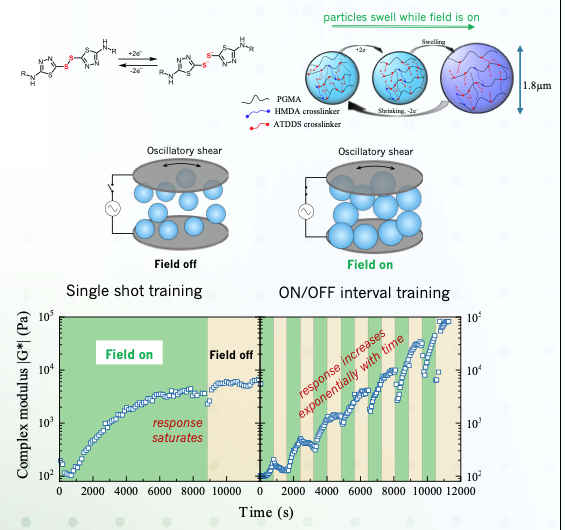Dense suspensions of microparticles can exhibit a stress-adaptive response, important for applications as shock- or impact-mitigating materials. Can this response be enhanced by training?
Using suspensions of poly(glycidyl methacrylate) microparticles functionalized with redox active disulfide bonds, which originally were developed [1] for redox flow batteries and swell when exposed to an E-field or UV light, a collaboration between the Chicago MRSEC groups of Jaeger, Patel, and Rowan showed that the complex modulus can be increased exponentially over several orders of magnitude by applying interval training during oscillatory shear, leading to a structural memory even after the field is turned off. This response can be erased by exceeding the training strain.
These findings demonstrate how training can unlock strongly enhanced properties in soft materials that have internal adaptivity (e.g., via plastic rearrangements) and can retain a memory.
